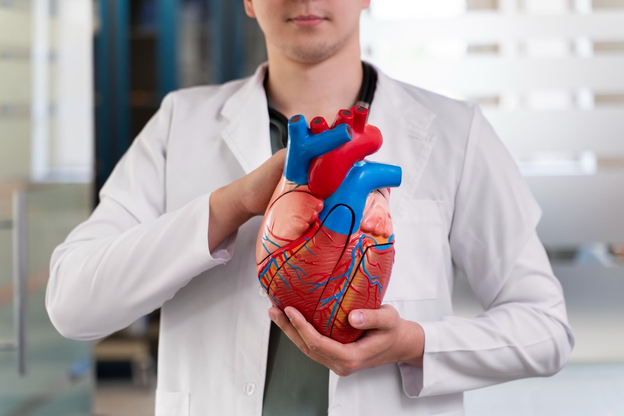Post-Operative Care and Lifestyle Tips After Heart Surgery

Heart surgery is one of the most significant medical procedures, often performed to address life-threatening conditions such as blocked arteries, valve defects, or congenital heart problems. The surgery itself is only the first step; the true challenge begins with recovery and long-term care. For patients undergoing Heart Surgery in Nashik, post-operative care and lifestyle adjustments play a vital role in ensuring a successful outcome, preventing complications, and restoring quality of life.
Importance of Post-Operative Care
The period after heart surgery is critical. Even though medical teams provide immediate post-surgical care, much of the responsibility for recovery shifts to the patient and their caregivers once discharged from the hospital. Proper post-operative care:
-
Helps prevent infections and other complications.
-
Supports faster healing of surgical wounds.
-
Reduces the risk of recurrence or secondary issues.
-
Improves both physical and emotional well-being.
Wound Care and Monitoring
After heart surgery, patients are left with incisions that require diligent care. Keeping the wound clean and dry is essential to prevent infections. Doctors usually recommend:
-
Changing dressings as advised.
-
Avoiding scratching or applying unapproved creams.
-
Watching for signs of infection like redness, swelling, discharge, or fever.
Immediate medical attention should be sought if any unusual symptoms appear around the surgical site.
Gradual Physical Activity
Rest is crucial, but so is movement. Remaining inactive for too long may increase the risk of blood clots and delay recovery. Patients are encouraged to:
-
Start with light walking sessions.
-
Avoid lifting heavy objects or performing strenuous activities for several weeks.
-
Follow a supervised cardiac rehabilitation program if recommended.
Over time, physical activity can help rebuild stamina, strengthen the heart, and improve circulation.
Diet and Nutrition for Recovery
Diet plays a central role in healing and long-term heart health. After surgery, the focus should be on foods that reduce strain on the heart and provide essential nutrients. Recommended practices include:
-
Eating a diet rich in fruits, vegetables, whole grains, and lean proteins.
-
Reducing salt intake to manage blood pressure.
-
Limiting saturated fats and avoiding trans fats to lower cholesterol.
-
Staying hydrated but within the limits set by the healthcare provider.
Good nutrition not only speeds up healing but also helps prevent future cardiac problems.
Medications and Compliance
Following heart surgery, patients are often prescribed medications such as blood thinners, cholesterol-lowering drugs, and pain relievers. Skipping doses or stopping medications without consulting a doctor can be dangerous. Key points include:
-
Taking medicines at the same time every day.
-
Understanding potential side effects.
-
Keeping a written record to avoid missed doses.
Strict adherence to medical prescriptions reduces the likelihood of complications and promotes steady recovery.
Emotional and Mental Health Support
Undergoing heart surgery is a major life event, and emotional healing is as important as physical recovery. Many patients experience feelings of anxiety, depression, or fear about their future health. Post-operative care should include:
-
Talking openly with healthcare providers about emotional struggles.
-
Seeking support from family, friends, or counselors.
-
Practicing relaxation techniques such as meditation or deep breathing.
Strong mental health contributes positively to physical healing and overall well-being.
Sleep and Rest Patterns
Quality sleep is essential for recovery, but some patients find it difficult due to discomfort, pain, or anxiety. Recommendations for better sleep include:
-
Using extra pillows for comfortable positioning.
-
Following a regular sleep schedule.
-
Avoiding caffeine and heavy meals before bedtime.
-
Creating a calm environment free from noise and distractions.
Restful sleep supports wound healing and reduces stress on the heart.
Avoiding Risk Factors
Lifestyle changes are necessary to prevent future cardiac problems. Patients must be mindful of avoiding:
-
Smoking: One of the biggest risk factors for heart disease recurrence.
-
Alcohol: Should be consumed only if approved by the doctor and in limited amounts.
-
Sedentary habits: Long-term inactivity can undo the benefits of surgery.
By eliminating these risk factors, patients significantly improve their chances of living a healthier life.
Importance of Follow-Up Visits
Regular follow-up visits with the cardiologist are essential to monitor progress. During these visits, doctors may:
-
Check blood pressure, cholesterol, and other vital signs.
-
Review wound healing and overall recovery.
-
Adjust medications if necessary.
-
Recommend further lifestyle modifications.
Skipping these check-ups may delay detection of complications, making consistent follow-up a non-negotiable aspect of recovery.
Role of Cardiac Rehabilitation
Cardiac rehabilitation programs provide structured guidance for recovery. These programs typically include:
-
Supervised exercise routines tailored to the patient’s condition.
-
Nutritional advice for long-term heart health.
-
Emotional support and counseling.
-
Education on maintaining a heart-healthy lifestyle.
Such programs have proven to reduce hospital readmissions and improve long-term outcomes for patients.
Family and Caregiver Involvement
Recovery after heart surgery is not a solitary process. The support of family and caregivers is invaluable. They help with:
-
Medication management and reminders.
-
Providing emotional reassurance.
-
Monitoring for warning signs and reporting them promptly.
-
Encouraging healthy habits and lifestyle changes.
Strong caregiver involvement often makes the difference between a smooth and difficult recovery.
Conclusion
Heart surgery is only the first step toward recovery; the true success lies in how well a patient follows post-operative care and lifestyle changes. Proper wound care, balanced nutrition, medication adherence, physical activity, emotional support, and avoiding risk factors all contribute to a stronger, healthier future. Regular follow-up and participation in rehabilitation programs further ensure long-term benefits. For those undergoing such critical treatment, the journey does not end in the operating room—it continues with conscious choices every day. With the right approach, individuals can rebuild their strength and confidence after Heart Surgery in Nashik, leading to a healthier and more fulfilling life.
